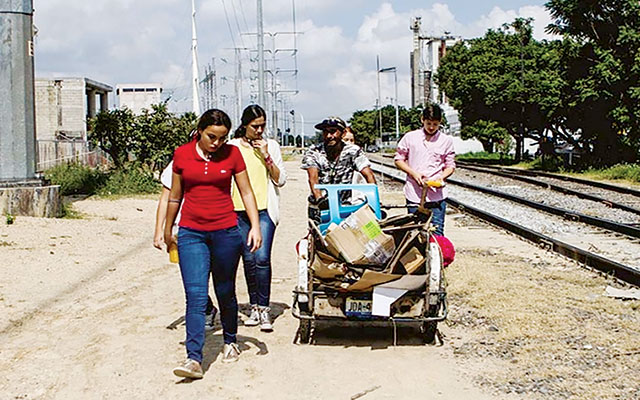
Knocking at the Door of Our Hearts
Peaking in the summer of 2014, what has become known as the “Central American unaccompanied minor crisis” grabbed the world’s attention. Tens of thousands of children, scared and alone in a treacherous journey, were fleeing horrific violence and poverty in search of safety and a better life. Sadly, although the story is now buried, the crisis continues today — and on a much wider scale.
Throughout El Salvador, Guatemala, and Honduras, ordinary children and families living under the shadow of organized crime and gang warfare face a life-or-death decision. Should they stay and risk kidnapping and murder as so many others had already suffered, or send the children on a perilous journey of hope toward the United States? And so the children flee, riding atop trains, crossing dangerous rivers, risking abuse and their very lives.
This is just one example of what has become an ongoing global tragedy. Every day, in countries throughout Europe, the same scene plays out over and over. Driven by political chaos, violence, or dire poverty, parents in developing countries around the world are making the gut-wrenching decision to send their children — often their only children — away, sincerely believing they will find better opportunities and a more hopeful future on distant shores. More often than not, however, these brave girls and boys encounter the exact opposite.
Housed in overcrowded and unsanitary conditions by well-intentioned host countries unprepared to handle such a massive influx, many simply flee to the streets. There, they quickly fall victim to crime, violence, exploitation, and abuse — facing the same despair they so desperately wanted to escape in the first place.
“As Salesians, we are called to do something about the requests for help from these children who come knocking at the door of our hearts,” says Father Giovani D’Andrea, president of the Federation of Social Services at the National Center of Salesian Works in Rome. In recent months, waves of minors from Bangladesh, Libya, Egypt, and Somalia have arrived in Italy.
Certainly, wherever and whenever migrant children and unaccompanied youth appear, our Salesian missionaries strive to honor the memory of Don Bosco.
“Any resolution to this complex situation demands a multi-dimensional response — one that upholds our moral obligation to the children who have already arrived, and one that works to effect systemic, sustainable change on behalf of those who remain at home,” says Father Mark Hyde, director of Salesian Missions.
On border towns between Mexico and the United States, for example — in Tijuana, Mexicali, and Nuevo Laredo (among others) — Salesians offer a safe place to live, providing shelter, meals, and a sense of family. In Sicily, missionaries house youth and teach them Italian while working to place them in family homes throughout the country. And in all cases, Salesian missionaries open more hopeful pathways for the children. They provide recreational and social time as a way to help them develop interests, skills, and interpersonal bonds, as well as education and skills training to prepare youth for long-term employment wherever they ultimately settle.
At the same time — as they always have — Salesian missionaries are working in more than 130 countries to address the root causes of this widespread crisis. Much of this work focuses on improving economic opportunity through education and guidance that prepares youth to become positive contributors to society, often involving advocacy and policy. Regarding Central America, the Salesians have established a collaborative international team responsible for devising and implementing programs to support the children who have already fled, while convincing others of doing the same.
“Don Bosco once said, ‘Anyone in trouble is my friend,’” says Fr. Mark. “It is important that we remember these children seek nothing but a better life. For as long as they need us, we will remain committed to helping child migrants — and all youth in adversity — who desperately need new hope and brighter futures.”
Our mission brings hope and dignity to desperate youth around the world. What’s your mission?

